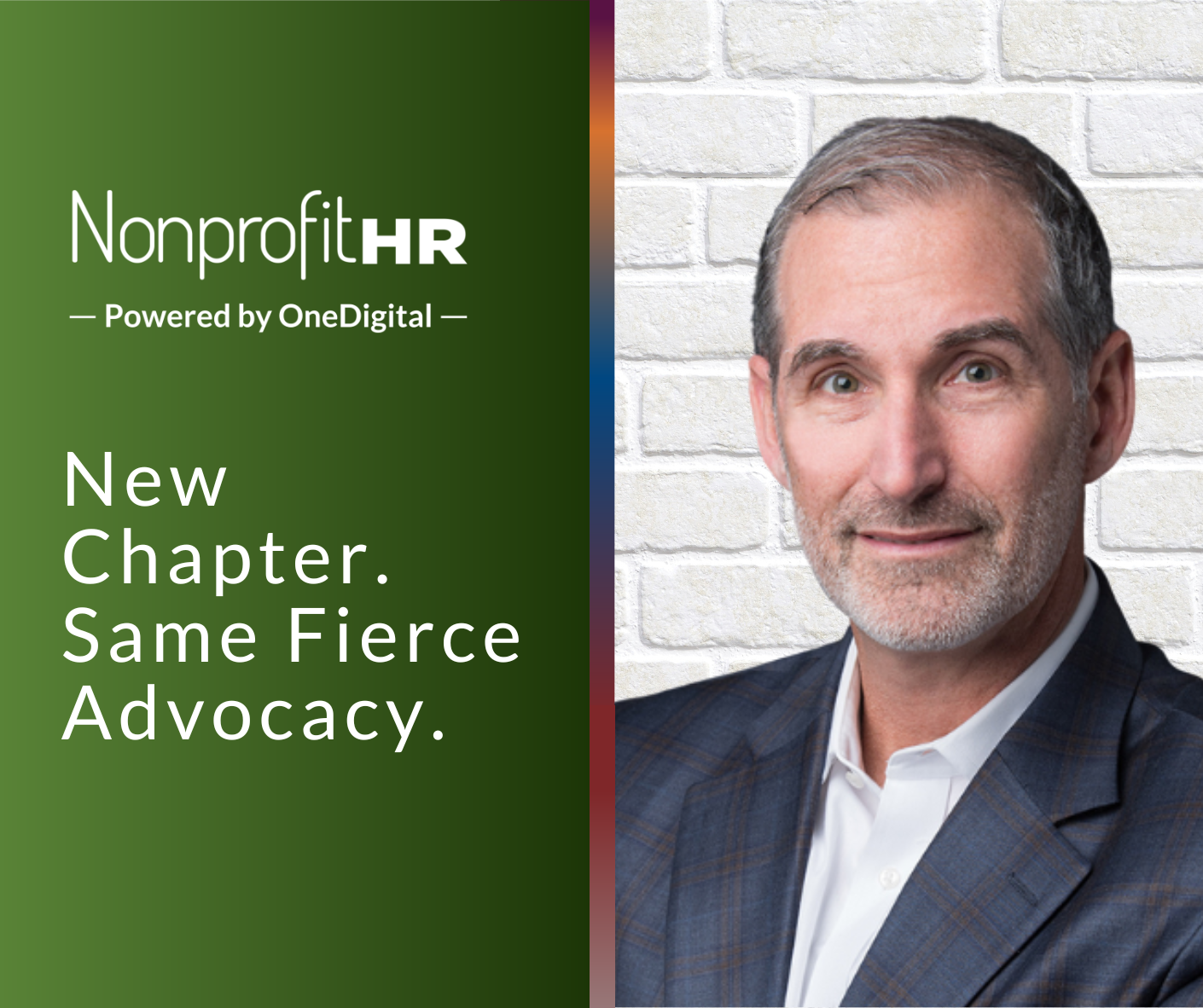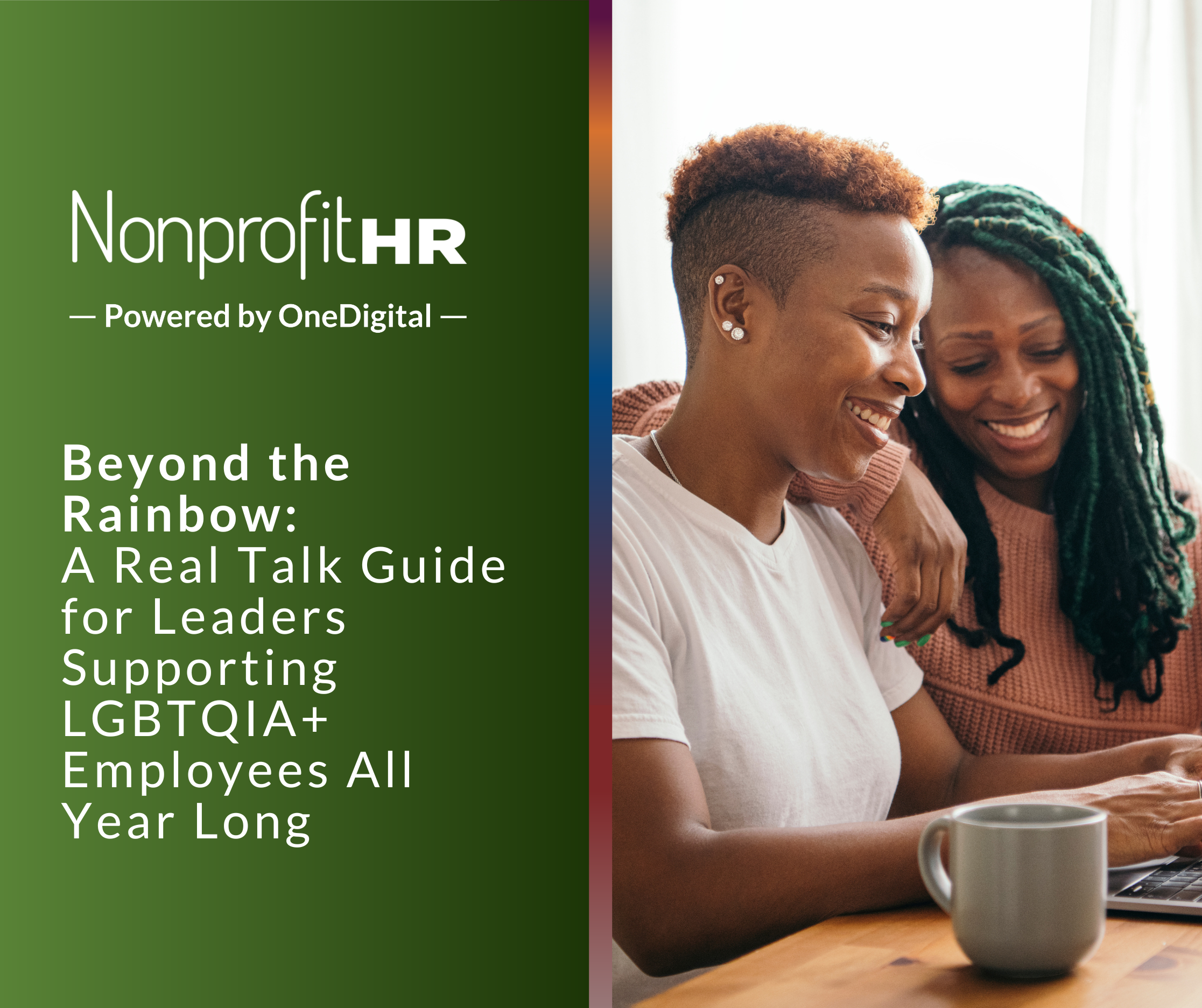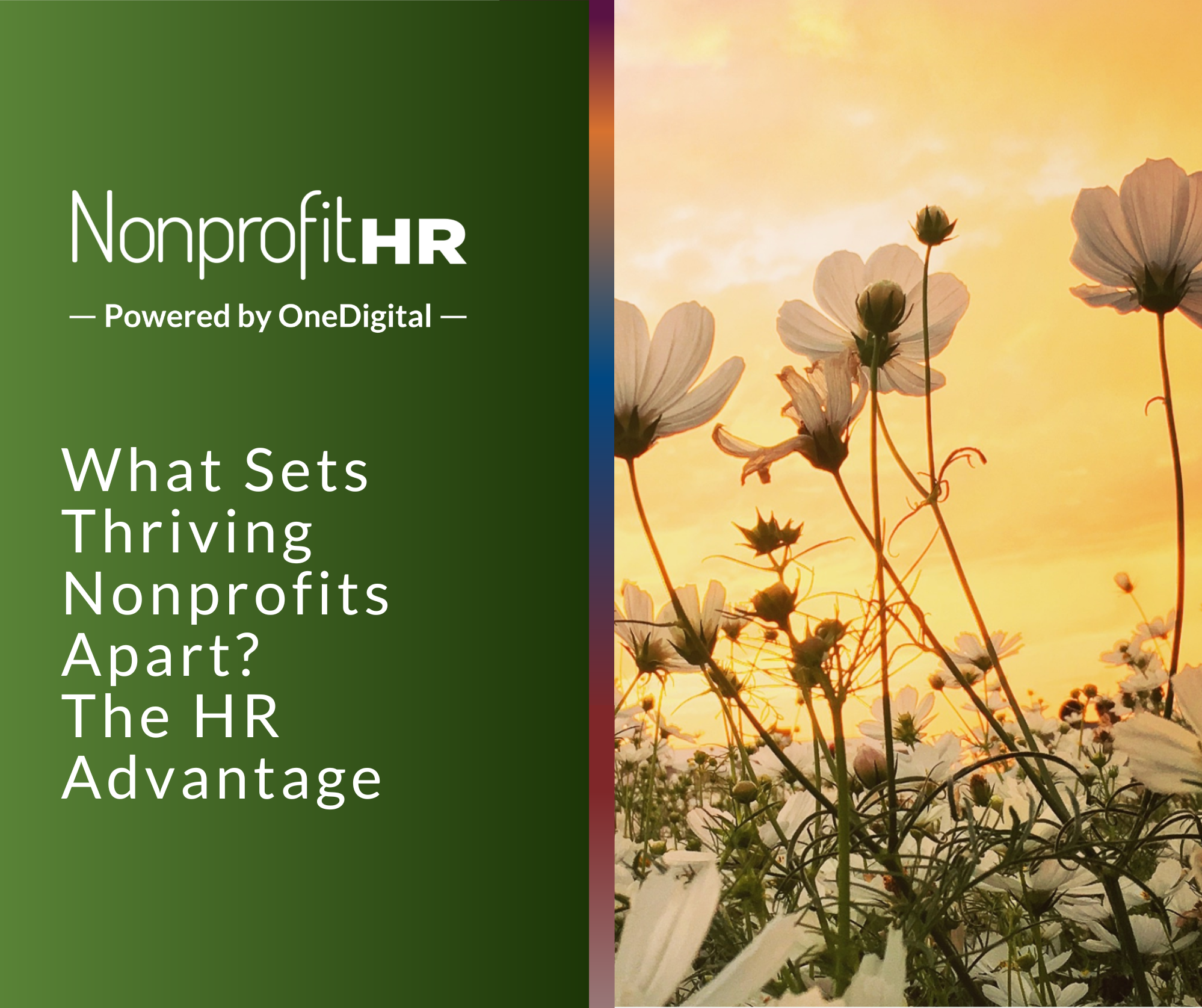WTOP: 5 ways nonprofits can…
-As leaders within the social impact sector, we find ourselves at a pivotal moment of transformation. The future of work is not just on the horizon — it is unfolding before us, challenging us to adapt and innovate in ways that align with our missions and values. As the CEO of Nonprofit HR, and as a fellow leader navigating these changes alongside you, I recognize the complexities and opportunities we face. Together, we have the responsibility and the privilege to shape how our organizations evolve in this rapidly changing landscape.
The Future of Work: A Catalyst for Social Impact
The future of work is a dynamic reality we must engage with thoughtfully and strategically. The ways in which we define work, build our workforce and structure our workplaces are evolving in response to significant forces such as technological advancements, shifting workforce demographics and changing expectations around leadership and culture. These changes present both challenges and opportunities for those of us dedicated to driving social impact.
- Work: The integration of automation and artificial intelligence (AI) into our work environments is fundamentally changing how tasks are performed. These technologies are not merely tools for efficiency; they are enablers of innovation, freeing us to focus more on strategic, creative and mission-critical activities. For our sector, this means a heightened capacity to innovate in program delivery, enhance stakeholder engagement and measure impact in real-time.
- Workforce: The social impact sector has long been a magnet for diverse talent, but the future demands even deeper commitment to inclusion. Building a workforce that reflects the diversity of the communities we serve is essential for driving innovation and ensuring our relevance in addressing complex social challenges. It’s not just about recruitment, it’s about creating an environment where every voice is heard and every perspective valued.
- Workplace: As the traditional boundaries of the workplace dissolve, we are called to rethink how we maintain organizational culture, collaboration and productivity. Remote and hybrid work models offer flexibility, but they also require us to be intentional about fostering connection and cohesion. By investing in flexible, collaborative environments — both physical and virtual — we can improve employee engagement and build the resilience needed to thrive in an increasingly competitive landscape.
Addressing Equity in Hybrid and Remote Work Models
One of the unique challenges we face in the social impact sector is maintaining equity between direct-service and non-direct service staff in hybrid and remote work environments. While administrative and support roles may adapt more easily to remote work, direct-service roles often require in-person engagement. This can create a sense of inequity or division within our organizations.
As leaders, we must be intentional in recognizing and valuing the contributions of all staff, regardless of their work environment. This could mean offering additional support to direct-service employees through enhanced wellness benefits, flexible scheduling within their roles or financial incentives that acknowledge the demands of in-person work. Moreover, ensuring that all staff have access to professional development, recognition and decision-making opportunities is crucial for fostering a unified and inclusive organizational culture.
Prioritizing Mental Health and Well-Being
In the context of the future of work, we cannot overlook the importance of mental health and well-being. The challenges of remote work, the blurring of personal and professional boundaries, and the ongoing stress of adapting to new technologies have placed significant strain on our teams. As we move forward, it’s imperative that we create supportive work environments that promote mental health and well-being.
This involves not only offering mental health resources and promoting work-life balance but also fostering a culture where employees feel safe to express their needs and concerns. As leaders, we must also be mindful of the unique stressors faced by direct-service staff, who may experience higher levels of burnout due to the nature of their work. By addressing these issues proactively, we can help ensure that our teams remain engaged, productive and committed to our shared mission.
Diversity, Equity, Inclusion and Belonging (DEIB): Beyond the Basics
In our ongoing commitment to DEIB, it’s essential that we go beyond the basics. DEIB must be woven into every aspect of our operations, from how we recruit and hire to how we design and deliver our programs. This requires a systemic approach that ensures diverse perspectives are fully integrated into decision-making processes and that all employees feel valued and supported.
Furthermore, our efforts must extend to leadership and governance. We must strive to ensure that our leadership teams and boards reflect the diversity of the communities we serve. This not only strengthens our ability to innovate and solve problems but also builds trust and credibility with our stakeholders.
Strategic Imperatives for Navigating the Future
As we navigate these converging trends, we must adopt a forward-looking, strategic approach to ensure our organizations are not just prepared for the future, but actively shaping it. Here are four key imperatives for our collective journey:
1. Lead Change with Purpose
The pace of change is relentless, and we must lead it with purpose. Cultivating a culture of agility and innovation, where change is embraced as an opportunity, is crucial to fulfilling our missions. This involves rethinking traditional approaches, breaking down silos and fostering a mindset of continuous improvement.
2. Invest in Talent Development
The future of work demands a workforce that is skilled, adaptable and resilient. We must prioritize continuous learning and development, equipping our teams with the skills they need to thrive in a rapidly changing environment. This includes both technical skills related to emerging technologies and soft skills like critical thinking, creativity and emotional intelligence.
3. Build Organizational Resilience
Resilience is the ability to not just survive but thrive in the face of adversity. For our organizations, this means being prepared for both sudden disruptions and incremental changes, with systems and processes in place to adapt quickly. Focusing on resilience at every level is essential for long-term sustainability and impact.
4. Promote Equity and Inclusion in Leadership
DEIB is a fundamental component of organizational success. By integrating DEIB into every aspect of our operations, from recruitment to program delivery, we can ensure that diverse perspectives are fully integrated into our work and that all employees feel valued and supported.
The Road Ahead: Creating the Future We Envision
The future of work in the social impact sector is not a distant reality — it is being shaped by the decisions we make today. Together, we have a unique opportunity to create a future that is resilient, adaptable and deeply aligned with the values of equity, inclusion and social impact. At Nonprofit HR, I am committed to partnering with you on this journey, offering the strategic insights and innovative solutions we need to navigate this complex landscape.
In a world where change is the only constant, let us lead with purpose, innovate with courage and remain steadfast in our commitment to the communities we serve. The future of work is ours to shape — let’s create it together.
Looking for more insights? Watch now the accompanying webinar Lisa led entitled The Nonprofit Navigator: Shaping the Future of Work in the Social Impact Sector.
Lisa Brown Alexander
Founder & CEO
Nonprofit HR
View Lisa’s bio.






























